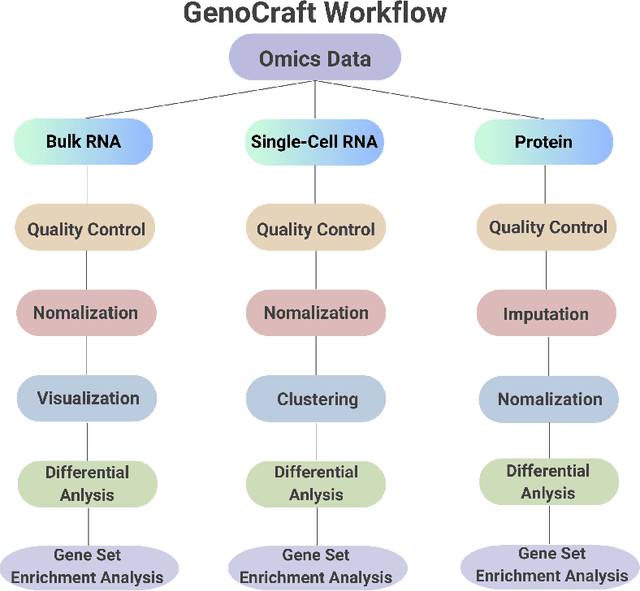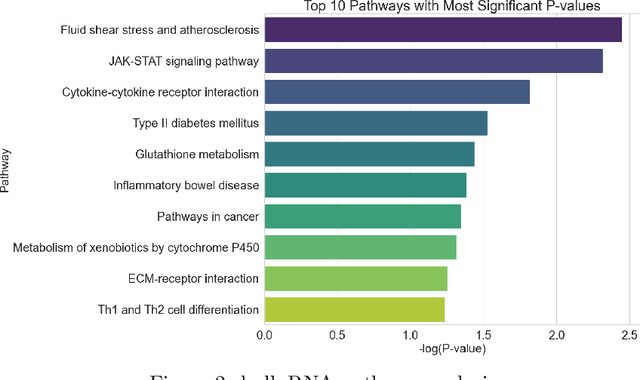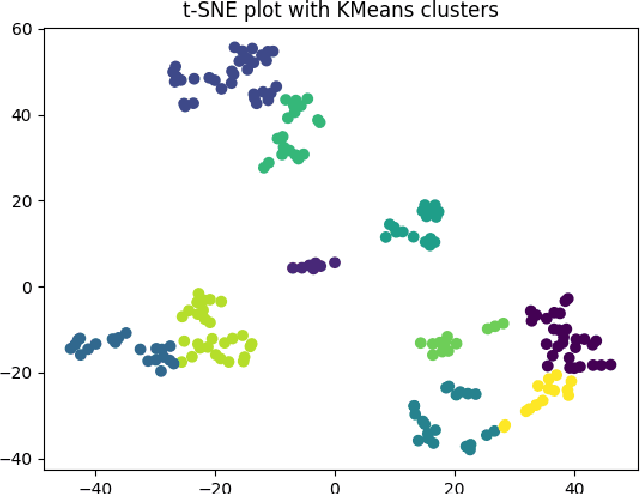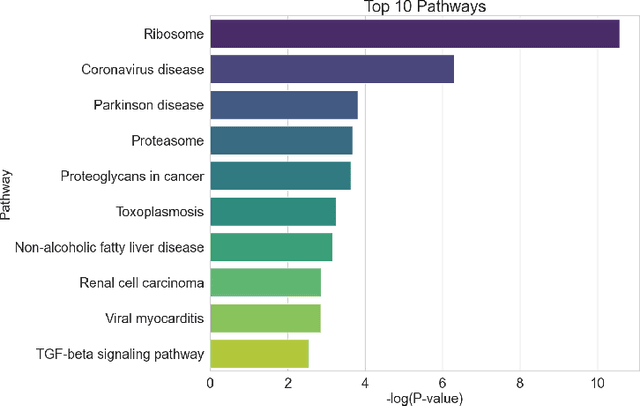Tim Fu
GenoCraft: A Comprehensive, User-Friendly Web-Based Platform for High-Throughput Omics Data Analysis and Visualization
Dec 21, 2023



Abstract:The surge in high-throughput omics data has reshaped the landscape of biological research, underlining the need for powerful, user-friendly data analysis and interpretation tools. This paper presents GenoCraft, a web-based comprehensive software solution designed to handle the entire pipeline of omics data processing. GenoCraft offers a unified platform featuring advanced bioinformatics tools, covering all aspects of omics data analysis. It encompasses a range of functionalities, such as normalization, quality control, differential analysis, network analysis, pathway analysis, and diverse visualization techniques. This software makes state-of-the-art omics data analysis more accessible to a wider range of users. With GenoCraft, researchers and data scientists have access to an array of cutting-edge bioinformatics tools under a user-friendly interface, making it a valuable resource for managing and analyzing large-scale omics data. The API with an interactive web interface is publicly available at https://genocraft.stanford. edu/. We also release all the codes in https://github.com/futianfan/GenoCraft.
Benchmarking Machine Learning Models for Quantum Error Correction
Nov 18, 2023Abstract:Quantum Error Correction (QEC) is one of the fundamental problems in quantum computer systems, which aims to detect and correct errors in the data qubits within quantum computers. Due to the presence of unreliable data qubits in existing quantum computers, implementing quantum error correction is a critical step when establishing a stable quantum computer system. Recently, machine learning (ML)-based approaches have been proposed to address this challenge. However, they lack a thorough understanding of quantum error correction. To bridge this research gap, we provide a new perspective to understand machine learning-based QEC in this paper. We find that syndromes in the ancilla qubits result from errors on connected data qubits, and distant ancilla qubits can provide auxiliary information to rule out some incorrect predictions for the data qubits. Therefore, to detect errors in data qubits, we must consider the information present in the long-range ancilla qubits. To the best of our knowledge, machine learning is less explored in the dependency relationship of QEC. To fill the blank, we curate a machine learning benchmark to assess the capacity to capture long-range dependencies for quantum error correction. To provide a comprehensive evaluation, we evaluate seven state-of-the-art deep learning algorithms spanning diverse neural network architectures, such as convolutional neural networks, graph neural networks, and graph transformers. Our exhaustive experiments reveal an enlightening trend: By enlarging the receptive field to exploit information from distant ancilla qubits, the accuracy of QEC significantly improves. For instance, U-Net can improve CNN by a margin of about 50%. Finally, we provide a comprehensive analysis that could inspire future research in this field. We will release the code when the paper is published.
 Add to Chrome
Add to Chrome Add to Firefox
Add to Firefox Add to Edge
Add to Edge